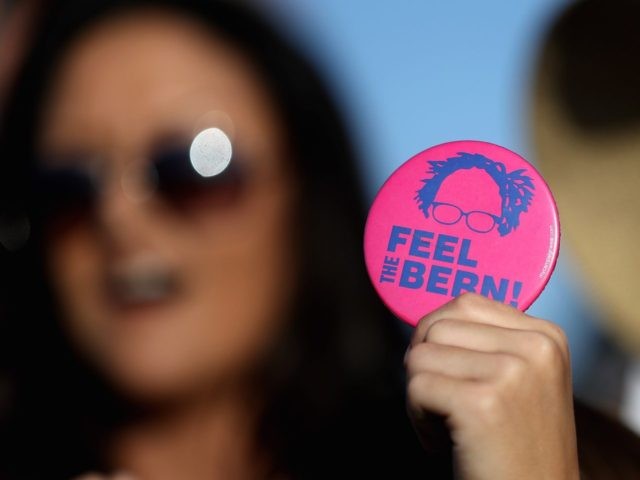California’s registered independent or “no party preference” voters could hold the key to Sen. Bernie Sanders (I-VT) winning California on June 7. Without them, it could prove difficult for the “democratic socialist” to stop Hillary Clinton from clinching the nomination.
The Democratic presidential primary, unlike the Republican presidential primary, is “open” in California. However, in order for independents who are voting by mail — as roughly two-thirds of primary voters do — to vote for Sanders, they must request a Democratic ballot. That is a part of the election process about which many voters are unaware, and about which the Sanders campaign has been trying to inform them.
“A lot of the time, the education just hasn’t been done,” Elena Salisbury, a regional field director for the Sanders campaign, told Bay Area public radio station KQED. She added, “And so we are working overtime to make sure that we contact as many of these people as possible so that they have a chance to vote for the candidate that they want to support.”
KQED notes that the consulting firm Political Data Inc. indicates that less than 15 percent of the 2.1 million independent Californians registered to vote by mail have requested a Democratic ballot so far. Registered independents reportedly have until May 30 to request a Democratic primary ballot from their county elections office. KQED also reports that these voters’ other option is to bring their mail ballot to their polling place on Election Day and request a traditional ballot instead.
Similar confusion had occurred during the New York primary which took place on April 19. “Today, 3 million people in the state of New York who are independents have lost their right to vote in the Democratic or Republican primary. That’s wrong,” Sanders had reportedly said in New York City at the time.
Hillary Clinton wound up beating Sanders in her adopted home state by eight percentage points.
Clinton has 2,297 delegates so far, less than 100 short of the 2,383 needed to win the required majority and secure her party’s nomination for the presidency. Sanders has 1,527 delegates and is almost 300 pledged delegates behind Clinton. Sanders has predicted that the Democratic National Convention in July will be contested, indicating his refusal to give up the battle. He will, however, likely need hundreds of “superdelegates” to defect to his side in order to win.
On Wednesday, Sanders accepted an invitation to debate Clinton from Fox News for a Democratic debate ahead of the June 7 California primary.
Follow Adelle Nazarian on Twitter @AdelleNaz

COMMENTS
Please let us know if you're having issues with commenting.